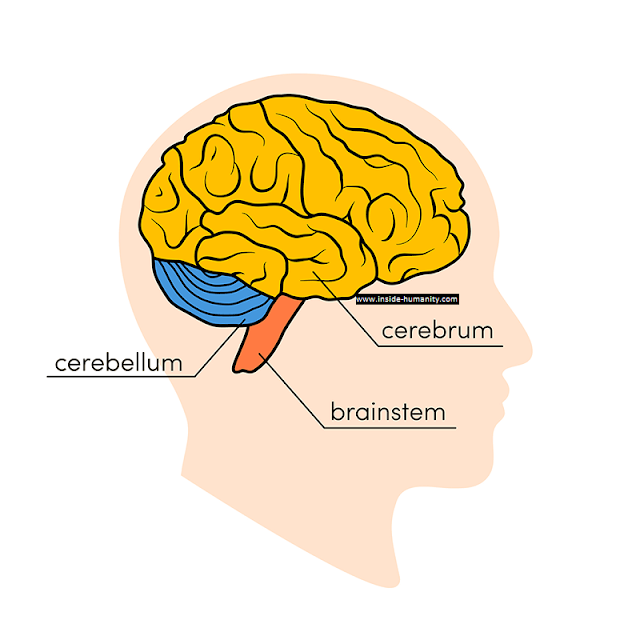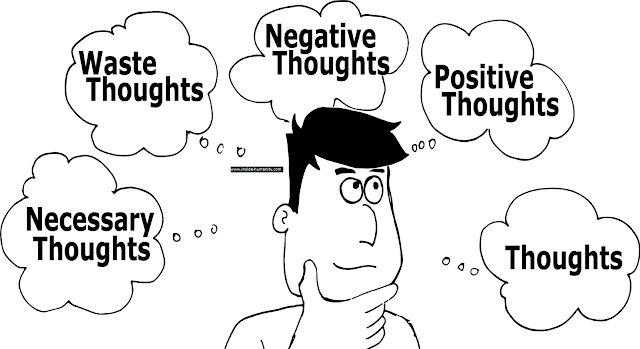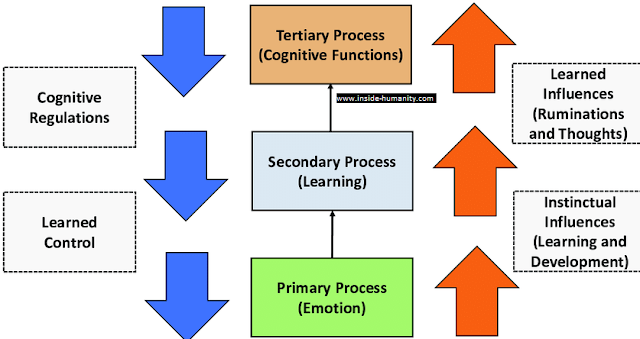Do you ever wonder what goes on inside your head? What drives your decisions, both big and small? . But the truth is, there’s a lot of psychology behind human thoughts. In this blog post, we’ll explore the psychology of human thoughts. We’ll look at some of the theories behind why we think and behave the way we do, and how those ideas can be applied in our everyday lives. So if you’ve ever wondered what makes you tick, read on!
What is the Psychology of Human Thoughts?
The psychology of human thoughts is the study of how people think and how those thoughts affect their behavior. It includes the investigation of how people’s thought processes influence their emotions, attitudes, and beliefs.
Researchers who study the psychology of human thoughts are interested in understanding why people have certain thoughts, how those thoughts can be changed, and what the consequences of having those thoughts are.
Another area of research that looks at the psychology of human thought is social cognition. Social cognition research investigates how people process information about other people and social situations. This research has shown that people often use mental shortcuts, or “heuristics,” when they are trying to make judgments about others.
How Do Our Thoughts Affect Our Emotions and Behaviour?
It has long been known that our thoughts can have a powerful effect on our emotions and behaviour. The renowned Greek scholar Aristotle said that "the spirit is where our considerations live". Furthermore, more as of late, the eminent specialist Carl Jung expressed that "believed is a calculate all human movement".
But what exactly is the relationship between our thoughts and emotions? How do our thoughts affect our behaviour?
Different Types of Thoughts
There are different types of thoughts, and the psychology of human thoughts can be quite complex. Here are some different types of thoughts:
• Positive Thoughts: Positive thoughts are those that make you feel good about yourself and your situation. They help you see the glass as half full, rather than half empty. Positive thinking can improve your mental and physical health, and it can also help you achieve your goals.
• Negative Thoughts: Negative thoughts are those that make you feel bad about yourself and your situation. They tend to focus on the negative aspects of life, and they can have a damaging effect on your mental and physical health. If you find yourself having negative thoughts, it’s important to try to counter them with positive ones.
• worrying Thoughts: Worrying thoughts are those that focus on potential problems or threats. They can cause anxiety and stress, and they can interfere with your ability to enjoy life. If you find yourself worrying too much, it’s important to take steps to reduce your anxiety level.
• Analytical Thoughts: Analytical thoughts are those that involve careful analysis and logical reasoning. They can be helpful in problem-solving, but they can also lead to overthinking and anxiety if you get too caught up in them. It’s important to strike a balance between analytical thinking and more creative or intuitive thinking.
• Intuitive Thoughts: Intuitive thoughts are those that come from our gut instinct or intuition.
Benefits of Positive Thinking
When it comes to the psychology of human thoughts, positive thinking has a number of benefits. For starters, it can help to increase your overall happiness and sense of well-being.
Additionally, positive thinking can help to improve your health, both physically and mentally. Finally, positive thinking can also lead to better decision-making skills and increased success in life.
Power of Negative Thinking
The power of negative thinking is a well-documented phenomenon in psychology. Negative thinking has been shown to lead to anxiety, depression, and even physical health problems.
There are a number of reasons why negative thinking is so powerful.
First, negative thoughts are more likely to be remembered than positive ones. This is because the brain is wired to pay more attention to threats and potential dangers.
Second, negative thoughts tend to be more vivid and concrete than positive ones. This makes them more believable and therefore more likely to influence our actions and decisions.
Third, negative thoughts can create a self-fulfilling prophecy. If we believe that something bad is going to happen, we are more likely to act in ways that make it more likely to happen. For example, if we believe that we will fail an exam, we may study less and do worse on the exam as a result.
Fourth, negative emotions such as fear and anxiety can lead us to engage in what is known as risk aversion – avoiding activities that could lead to the bad outcome we are worried about. So if we are afraid of failure, we may avoid taking risks or trying new things altogether.
Finally, negative thinking can become a habit that is hard to break free from. Once we get into the habit of dwelling on all the things that could go wrong, it can be difficult to see the positives in life or find motivation for change.
Managing Your Thoughts
The human brain is constantly producing thoughts, even when we are not consciously aware of it. Most of these thoughts are unconscious and automatic, but they can still have a major impact on our lives. For example, studies have shown that people who worry about their health are more likely to get sick than those who do not worry about their health.
That's why it's so important to learn how to manage your thoughts. If you can control your thoughts, you can control your emotions and your behavior. You can also reduce stress, anxiety, and depression. There are several techniques that you can use to manage your thoughts:
1. Pay attention to your thoughts. Know about the examples in your reasoning. Are you always worrying about something? Do you always focus on the negative? Once you become aware of your thinking patterns, you can start to change them.
How do Human Thoughts work?
It is still a mystery how human thoughts work. Scientists have looked at the brain and tried to understand how its structure relates to function. Be that as it may, they have not had the option to concoct a conclusive response.
One theory is that thoughts are generated by electrical activity in the brain. This activity is thought to be regulated by chemicals called neurotransmitters. Another theory is that thoughts are created by the interactions between different areas of the brain.
Some scientists believe that thoughts are generated by electrical activity in the brain. Others accept that contemplations are the aftereffect of substance responses. Still others believe that thoughts are a combination of both electrical and chemical activity.
It is still not known for sure how human thoughts work. However, scientists are continuing to study the brain in an effort to better understand its function. Whatever the case may be, one thing is certain: human thoughts are complex and fascinating. And scientists will continue to study them in an effort to better understand how they work.
How can Human Thoughts be controlled?
It is no secret that human thoughts can be quite powerful and, at times, uncontrollable. But what if there were ways to control our thoughts? Turns out, there are! Here are a few methods for controlling those pesky human thoughts:
1. Change your environment: If you find yourself in a place or situation that is triggering negative thoughts, try to change your environment. This could mean leaving the room you’re in, going for a walk outside, or even just changing your position. Sometimes all it takes is a change of scenery to help clear your mind and stop the negative thoughts in their tracks.
2. Distract yourself: When you’re feeling overwhelmed by negative thoughts, try to distract yourself with something else. This could be listening to music, reading a book, watching a movie, or anything else that can take your mind off of the negative thoughts and help you relax.
3. Practice mindfulness: Mindfulness is all about being present in the moment and focusing on your breathing. When you start to feel your thoughts spiraling out of control, take a few deep breaths and focus on the present moment. This will help calm your mind and give you some much-needed perspective.
4. Talk to someone: Sometimes talking to someone else can really help put things into perspective. Talking openly about whatever is causing your negative thoughts can help you see the situation more clearly and find new ways to deal with it.
5. Write it down: Sometimes the act of getting your thoughts out of your head and onto paper can help you make more sense of them. Writing down your thoughts can also help you see which ones are really worth focusing on and which ones you can let go of.
6. Challenge your thoughts: When you find yourself thinking negative thoughts, try to challenge them. Ask yourself if the thoughts are really true or if there is another way to look at the situation. Oftentimes, we get caught up in our own negative thought patterns without even realizing it. Challenging your thoughts can help break the cycle and allow you to see things more clearly.
7. Practice gratitude: One of the best ways to counteract negative thoughts is to focus on the positive. When you start feeling down, take a few minutes to think about things that you’re grateful for in your life. This could be anything from your wellbeing to your loved ones. Focusing on the good can help shift your mindset and give you some much-needed positivity.
What are Human Thoughts?
Human thoughts are defined as the ideas, images, and emotions that go through our minds. They can be positive or negative, happy or sad, planned or spontaneous. Many factors influence our thoughts, including our mood, environment, and relationship with others.
Our thoughts are constantly changing, and we may have different thoughts about the same thing at different times. For example, we may think something is good for us when we're feeling happy but then change our minds when we're feeling sad.
Thoughts also vary in how much control we feel we have over them. We may feel like we're in control of our positive thoughts but not our negative ones. Or we may feel like we can't control any of our thoughts at all.
The Psychology of Human Thoughts: Pros and Cons
There are many different schools of thought when it comes to the psychology of human thoughts. Some believe that our thoughts are purely based on our individual experiences and personal biases, while others believe that there is a more universal subconscious at play.
Here, we will explore the pros and cons of both perspectives in order to better understand the psychology of human thoughts.
On the pro side, those who believe that our thoughts are primarily based on our individual experiences argue that this allows us to better process and make sense of the world around us.
They also contend that this perspective can help us to empathize with others, as we can better understand their individual thought processes. On the con side, those who believe in a more universal subconscious argue that this can lead to negative thought patterns and a lack of creativity. They also contend that this perspective can limit our ability to empathize with others, as we may not be able to understand their thought processes if they differ from our own.
Ultimately, there is no right or wrong answer when it comes to the psychology of human thoughts. What matters most is which perspective you find most helpful in your own life. If you find that understanding your own individual thought process helps you to better navigate the world around you, then stick with that perspective.
Human Thoughts and Emotions
It is amazing how much our thoughts and emotions affect our daily lives. They can influence our decision-making, how we interact with others, and even our physical health. That’s why it’s important to understand the psychology of human thoughts and emotions.
Thoughts are the mental activity that allows us to perceive, think, remember, and problem-solve. Emotions are the feelings that arise in response to thoughts or events. Both thoughts and emotions are important pieces of information that help us navigate the world.
Thoughts can be positive or negative, but they usually fall into one of three categories: self-referential ( focused on the self), other-referential ( focused on others), or neutral ( not focused on either the self or others). Emotions can also be positive or negative, but they tend to be more complex than thoughts. They can include a mix of different feelings, such as happiness, sadness, anger, fear, love, etc.
The psychology of human thoughts and emotions is a complex topic, but there are a few key things to keep in mind. First, our thoughts and emotions are always changing and evolving. Second, they are influenced by both internal factors (our personal experiences) and external factors (the people and world around us). And third, we have some control over our thoughts and emotions – though it may not always feel like it!
How can we control Human Emotions?
Human emotions are not something that can be controlled with the snap of a finger. However, there are certain things that individuals can do to help manage their emotions better. Some ways to control human emotions include:
1) Identifying and acknowledging the emotion you are feeling. This is the first step in managing any emotion – you cannot change or deal with an emotion if you are unaware of it. 
2) Trying to understand where the emotion is coming from. Once you know what you are feeling, ask yourself why you are feeling it. This can help provide some clarity and insight into the situation and may help lessen the intensity of the emotion.
3) Deciding how you want to react to the emotion. This is a key step in managing emotions – do not let your emotions control your actions! Choose how you respond to the emotion, rather than letting the emotion dictate your behaviour.
4) Putting your plans into action. After deciding how you want to react, take concrete steps to implement your plan. This may involve deep breathing exercises, walking away from a stressful situation, or journaling about your emotions.
5) Checking in with yourself regularly. Emotions can change rapidly, so it is important to check in with yourself frequently to see how you are feeling. If you find that your emotions are starting to get the better of you, return to steps 1-4 to help get them back under control. situation, or journaling about your feelings.







.png)


.png)


0 Comments
Thank you. We'll reply you shortly.